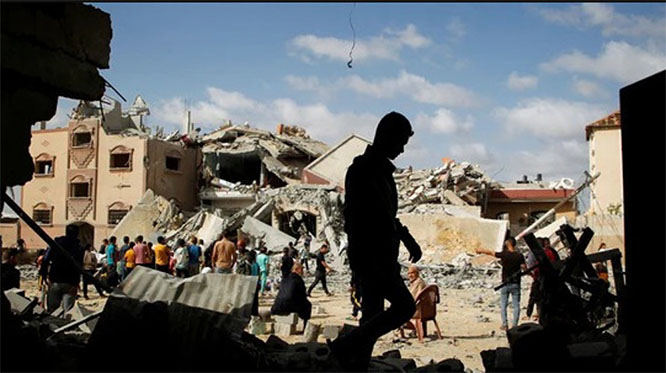Jeddah, Nov 4: The revamped national curriculum in the Saudi public education system has rattled schools, with significant changes taking place over the past few years.
These reforms are the biggest in education since the establishment of modern Saudi Arabia. The changes have affected over five million students across the country.
The re-written national curriculum addresses the long-held criticism of Saudi public education for its rote nature of teaching. This has become obsolete in a more challenging era of economic and technological prosperity, proliferation of information and competitiveness.
Hussein Al-Oufi, co-author of the new Arabic language courses, told Arab News that it had taken five years of dedicated work before the Ministry of Education approved the revised Arabic curriculum now taught in elementary and intermediate schools.
“Teachers are no longer the only source of information for students,” he said. The old image of the teacher in the classroom has changed. The teacher’s new role is that of a facilitator of learning, as the students engage in a more collaborative learning environment with textbooks as just one tool for gaining knowledge, he said.
Major learning objectives for Arabic language lessons were simply packaged in a more language communicative approach balancing listening, speaking, reading, and writing skills, he said.
This was in a sharp contrast with the old Arabic language fragmented, skill-based curriculum that focused on memorization and repetition drills, which added a cognitive load to students, he said.
“The change allows students to acquire skills such as conception, practice, critical thinking, innovation and creativity, helping Saudi students to be more competitive with pupils abroad,” Al-Oufi added. The new education policy in the country has taken the "constructivism learning theory" as a base for modernizing education through discovery, practice, experience and collaboration.
Subject matters such as history and geography are also introduced in a more relevant and cohesive approach in one single textbook, and best of all, in a more appealing fashion, he added.
Ibrahim Al-Ghamdi, a school principal, said it was a step in the right direction with a more balanced and integral curriculum that helps students connect the dots and make the connection of the knowledge acquired in each subject.
“It does not only meet the students’ needs, but also the requirements of the national development plans,” he said.
Al-Ghamdi added that the new curricular changes could provide learning skills that students need to acquire knowledge and search for information wherever it may be. They also reinforce Islamic and national values and principles, such as moderation, tolerance, loyalty to the homeland, and preserving its accomplishments, he said.
“Unless we take the initiative to develop our educational system, we would surely pay the cost,” said Ahmed Jarallah, a high school teacher. “We can consult curricula in developed countries, without compromising our Islamic identity,” he said.
Nawaf Khazmari, a high school student, said that he and his classmates were happy to see the curriculum delivered with interesting topics, art and illustrations that make it easier for students to digest. “They know we would love visual aids,” he said.
“Evening homework is more fun now with the new textbooks, but we would love the next step for the homework to be digital” said Ayman Jamal, another high school student.
The Ministry of Education has gradually, over the past three years, introduced a university-like system, converting high schools into mini-campuses. The new system follows a semester-based university system, including admission and graduation requirements, two specialization tracks of science and humanities, and a study plan of 200 required credit hours.
Mona Al-Ghamdi, a high school teacher of Islamic studies, said: “A good student can finish high school in less than three years.”
The proposed changes have sparked a push back, however. “Everything seems in order regarding curricula, but where are the educational aids that can help us make the classroom environment more interesting?” asked a high school teacher who spoke on the condition of anonymity. The government has allocated some SR9 billion for the Tatweer (development) project, which began in 2008. “We can’t yet feel that development in our working environment and classrooms,” he said. “With such a big sum of money, we thought our schools would be like castles in the sky,” he added.
“It seems that the Education Ministry is determined to make a real change, but this will not happen unless it provides the teachers with all educational aids they need, including the professional development of teachers,” he said.
Teachers are hopeful to see their students getting rid of their heavy backpacks with textbooks. “All the students needs can be downloaded on a laptop,” he said.
The Ministry of Education has earlier pledged support to make the new system work. With 786 high schools across the country thus far implementing the new system, the ministry will provide these schools with the necessary human, academic, financial, technological and technical resources, said Kahled Al-Sabti, deputy minister of education.






Comments
Add new comment